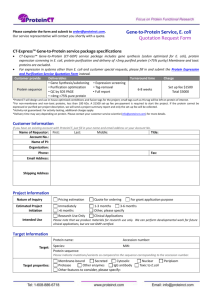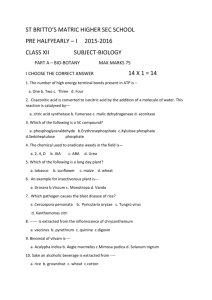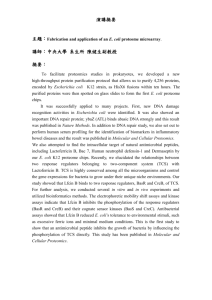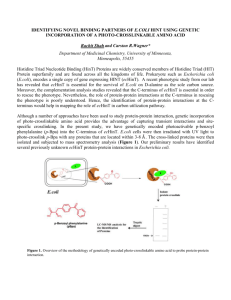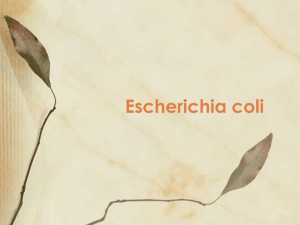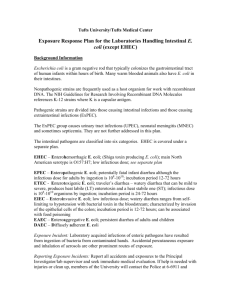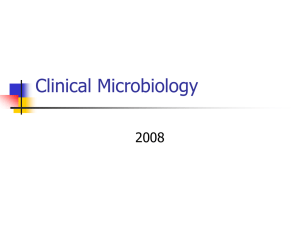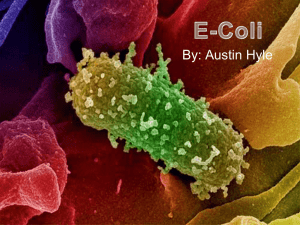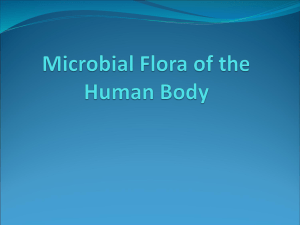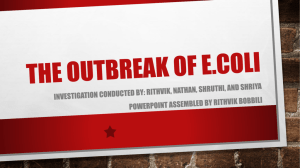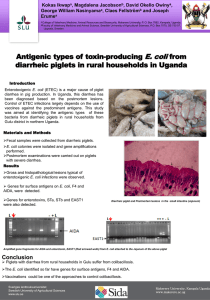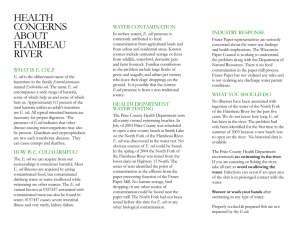Food Poisoning: Escherichia Coli
advertisement
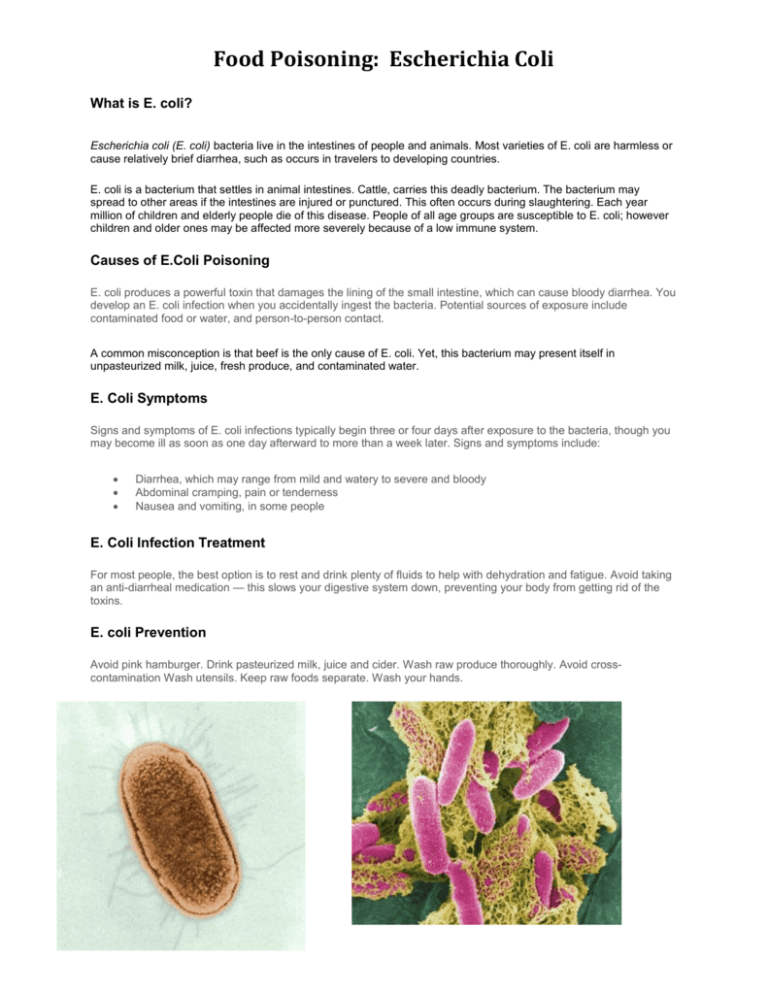
Food Poisoning: Escherichia Coli What is E. coli? Escherichia coli (E. coli) bacteria live in the intestines of people and animals. Most varieties of E. coli are harmless or cause relatively brief diarrhea, such as occurs in travelers to developing countries. E. coli is a bacterium that settles in animal intestines. Cattle, carries this deadly bacterium. The bacterium may spread to other areas if the intestines are injured or punctured. This often occurs during slaughtering. Each year million of children and elderly people die of this disease. People of all age groups are susceptible to E. coli; however children and older ones may be affected more severely because of a low immune system. Causes of E.Coli Poisoning E. coli produces a powerful toxin that damages the lining of the small intestine, which can cause bloody diarrhea. You develop an E. coli infection when you accidentally ingest the bacteria. Potential sources of exposure include contaminated food or water, and person-to-person contact. A common misconception is that beef is the only cause of E. coli. Yet, this bacterium may present itself in unpasteurized milk, juice, fresh produce, and contaminated water. E. Coli Symptoms Signs and symptoms of E. coli infections typically begin three or four days after exposure to the bacteria, though you may become ill as soon as one day afterward to more than a week later. Signs and symptoms include: Diarrhea, which may range from mild and watery to severe and bloody Abdominal cramping, pain or tenderness Nausea and vomiting, in some people E. Coli Infection Treatment For most people, the best option is to rest and drink plenty of fluids to help with dehydration and fatigue. Avoid taking an anti-diarrheal medication — this slows your digestive system down, preventing your body from getting rid of the toxins. E. coli Prevention Avoid pink hamburger. Drink pasteurized milk, juice and cider. Wash raw produce thoroughly. Avoid crosscontamination Wash utensils. Keep raw foods separate. Wash your hands.
